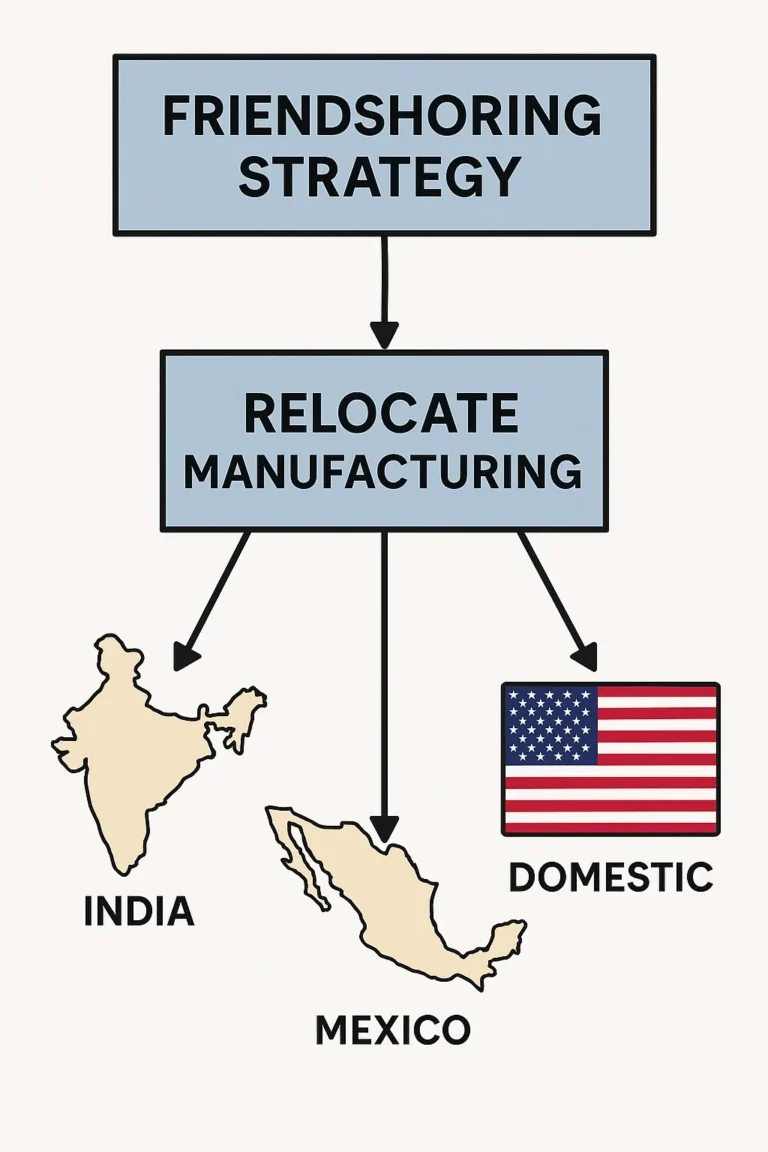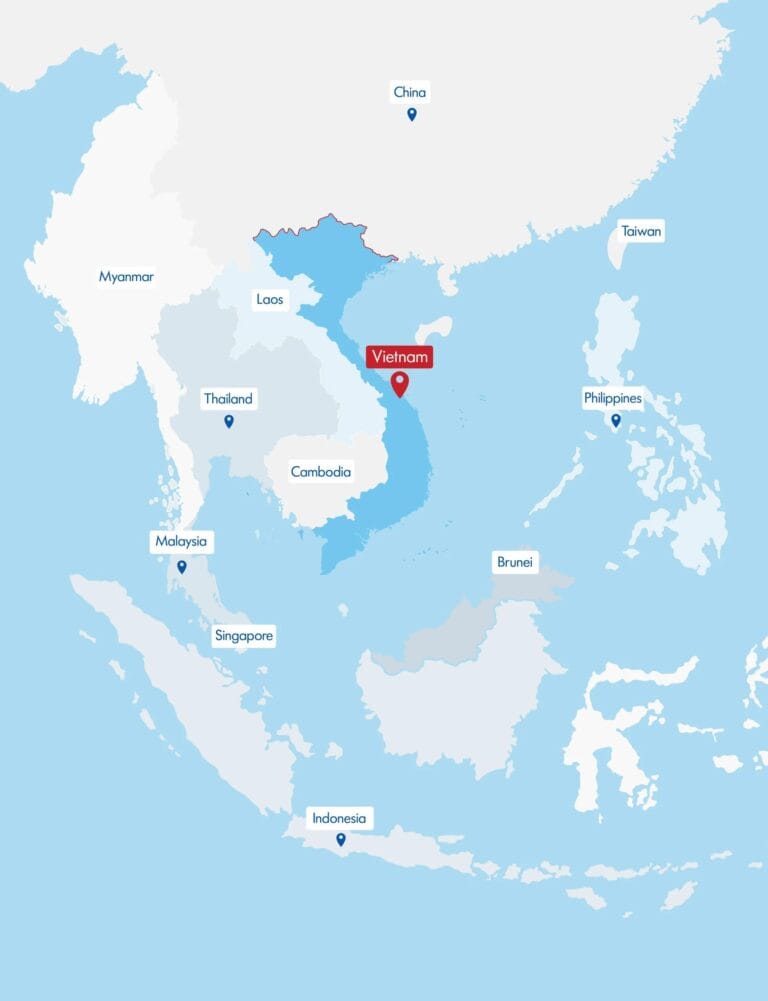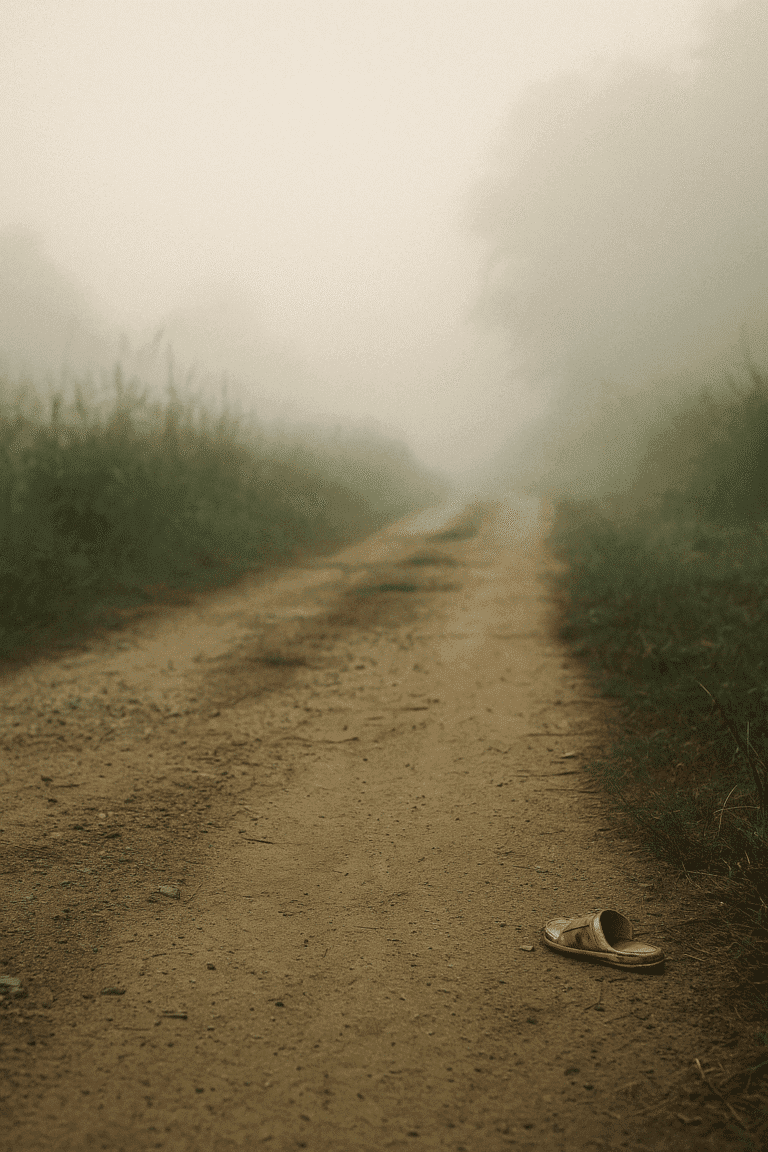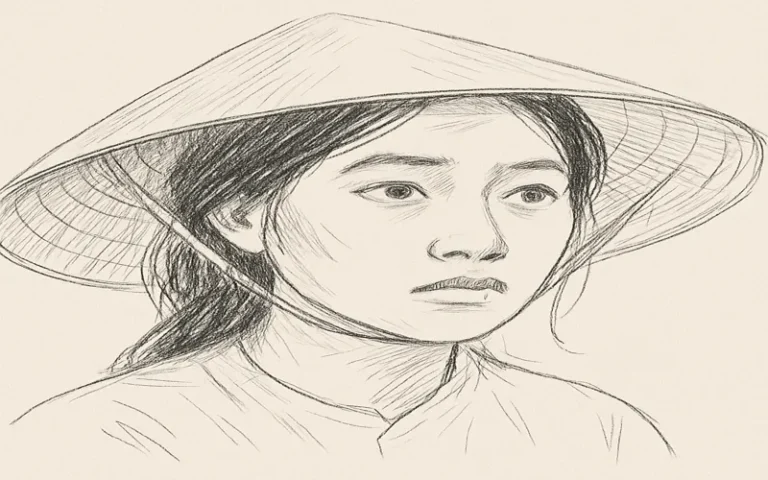The Inheritance of Silence
Welcome to the Refractions Series, where we explore the intersection of tradition and modernity, culture and technology, through a Vietnamese lens. Each essay in this collection sheds light on the way we navigate identity in a globalized world, from the roots of our heritage to the far-reaching influence of technology. For more essays in the series, visit the Refractions page.
I grew up tuned to the sound of spoons tapping against ceramic bowls, the sudden hiss of fish sauce hitting hot oil, the whispering sweep of a broom gathering dust into a quiet corner. These were the intimate sounds of home — not stories shouted loud, not declarations of history, not the grand retelling of what had come before. My childhood was steeped in a particular silence. Not emptiness, nor neglect, but a kind of chosen, protective hush.
No one offered the full story of the war. Not from unwillingness, perhaps, but because the story itself had become a burden — too heavy, too tangled with ghosts, or maybe too sacred to unfold completely. I learned young that certain questions made faces tighten, made gazes slide away. Some names remained unspoken, settling like dust motes in the quiet air. The silence wasn’t absence; it was memory wrapped in gauze; the faint outline of the wound sometimes visible beneath the careful folds.
When I asked my grandmother about the years before, her reply was a sigh, condensed — “It was hard.”
When I asked my father what sustained him, he offered: “We worked.”
And when I asked my mother why we traded one life for another, she simply stated: “It was time.”
These clipped phrases — dropped like stones into the quiet well of our home — marked depths I couldn’t yet fathom. They were soft fences, defining the landscape of what could and could not be voiced. But listening closely within their boundaries, I began to hear the rhythm of something deeper: the sorrow they refused to pass directly onto me, the sharp edges of pain they had painstakingly flattened into function, and the immense, quiet will it took to survive by saying almost nothing at all.
Silence became our inheritance.
We learned its shape in classrooms, hands raised only when certain, voices kept measured and low. We absorbed it at dinner tables where restraint was the currency of pride, where a second helping accepted without fuss spoke volumes louder than any boast. Even love arrived quietly: a perfectly peeled orange left wordlessly on a desk, an extra fried egg appearing like a small sun on a landscape of rice.
But silence, inherited, is not static. Over time, what began as a shield, held close for protection, started to fuse to the skin. The quiet that once felt like a haven slowly became a room without windows, the air growing thin, the weight pressing down. What once protected now began to isolate.
I found my own voice tangled in the unsaid things of my parents. I could not speak fully of myself until I first gave sound to the trauma, the loss, the desperate hope they had borne in quiet fortitude. Unlearning silence wasn’t about judging it as wrong, but about struggling to breathe again outside its profound, encompassing confines.
And yet, I honor that quiet. I hold their silence like a relic, understanding its purpose now. It wasn’t weakness; it was a profound strategy, a form of mercy. It was their prayer whispered into the future: “We endured this, so you wouldn’t have to carry its full weight.”
But I must speak — not only for my own breath, but for theirs too.
Because silence doesn’t end with forgetting.
It ends when someone — finally — is ready to listen.
Get the Digital Edition of the Refractions Series
If you enjoy these reflections and want to dive deeper into the entire Refractions collection, you can purchase the full digital edition of the series on Gumroad. Click here to access the digital edition on Gumroad.








